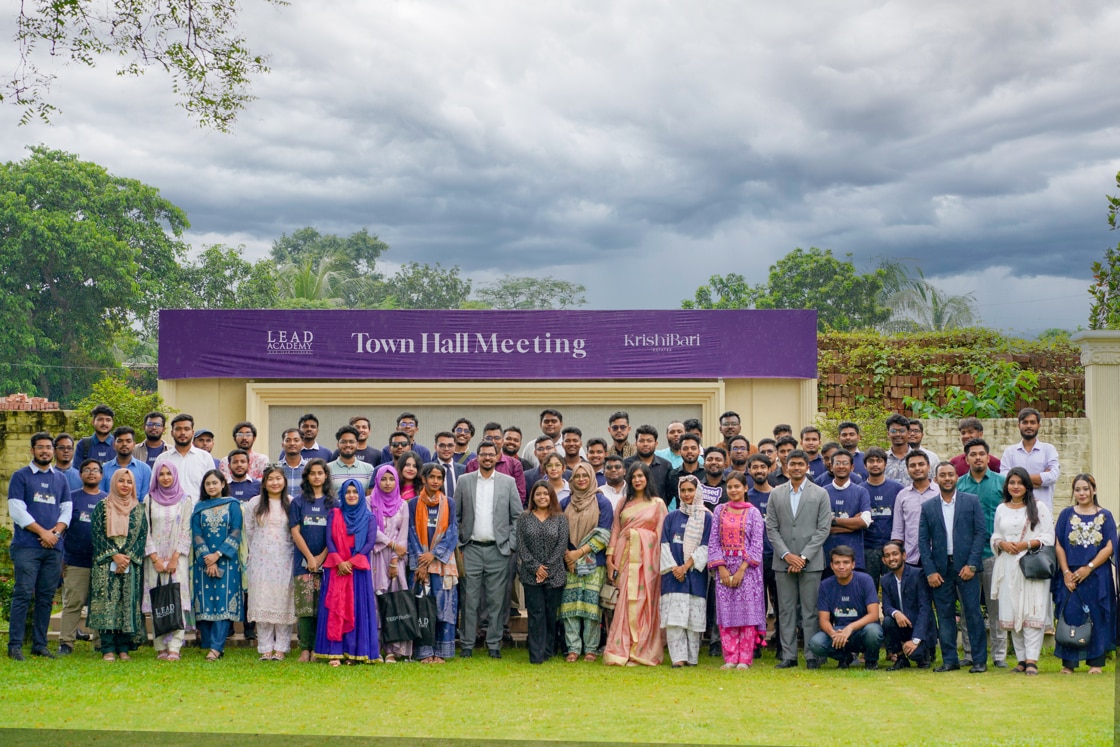
LEAD Academy, a fast-growing Dhaka-based edtech startup focused on equipping students and professionals with employable and in-demand skills, hosted its 2025 Town Hall Meeting late August at Krishibari Estates in Savar.
The event convened a working dialogue between industry professionals, educators, and youth from over eight districts, resulting in a clear consensus for addressing the country's skills gap: building a future-ready workforce requires systemic investment in both technical and soft skills, with a focus on inclusivity.
The meeting's structure reflected a practical approach to problem-solving, structuring the meeting to move from listening to action. Rather than beginning with expert panels, the day started with feedback sessions where youth from eight districts identified specific barriers to acquiring relevant job skills. This ground-level input directly shaped the subsequent design thinking workshop led by Co-founder Ashfaq Zaman, creating solutions informed by actual user needs.
The key roundtable discussion "Amplifying Community Voices for Education", drove the agenda forward, helping generate several concrete insights that point toward more effective skills development. Distinguished instructors from corporate and freelance backgrounds debated pressing needs, from formalizing industry-education partnerships to integrating AI, soft skills, and mental health awareness into learning pathways.
The consensus highlighted that effective skills training requires addressing structural gaps. S M Ahbabur Rahman of Transparency International Bangladesh noted the economic cost of overlooking blue-collar workers, stating, "Equal importance must be given to our blue-collared workers who are constantly ignored when it comes to providing structural upskilling."
Similarly, Mahmudul Hassan from BanglaVision proposed a practical mechanism for bridging the education-industry divide: "Conducting a Teachers' Forum will provide an open and free platform for dialogue, knowledge-sharing, and professional growth among educators." This addresses the core problem of outdated curricula.
Nuzhat Farhana's emphasis on multilingualism highlighted an often-overlooked competitive advantage for Bangladeshi youth in global markets.
The event, which included networking over Bengali cuisine, underscores LEAD Academy’s established track record of working with over 50 institutions and corporations to develop practical talent. Since its inception, the academy has focused on closing the gap between academic knowledge and the practical skills demanded by the economy, by providing practical skills training and high quality online learning.
For LEAD Academy, the event provided direct feedback from both future employees and their potential employers. The discussions validated the organization's focus on market-relevant skills while highlighting specific areas for increased attention.
The event concluded with Ashfaq Zaman outlining how these insights will inform LEAD Academy's program development, expanding access to quality learning and building a future-ready workforce across Bangladesh.
